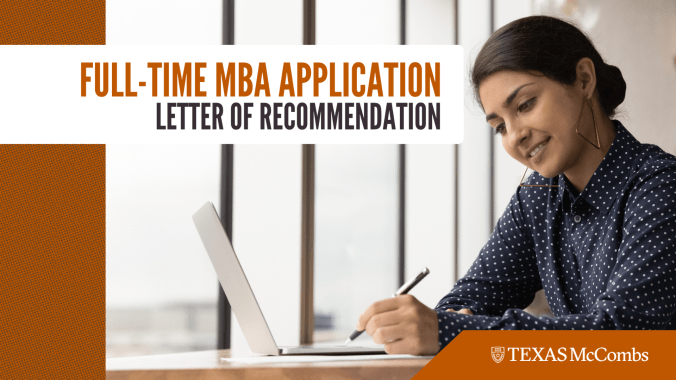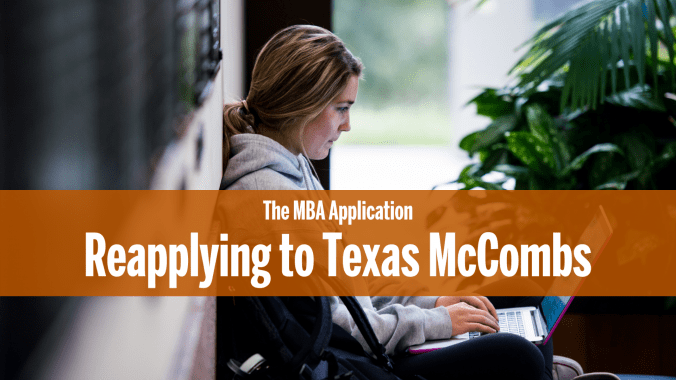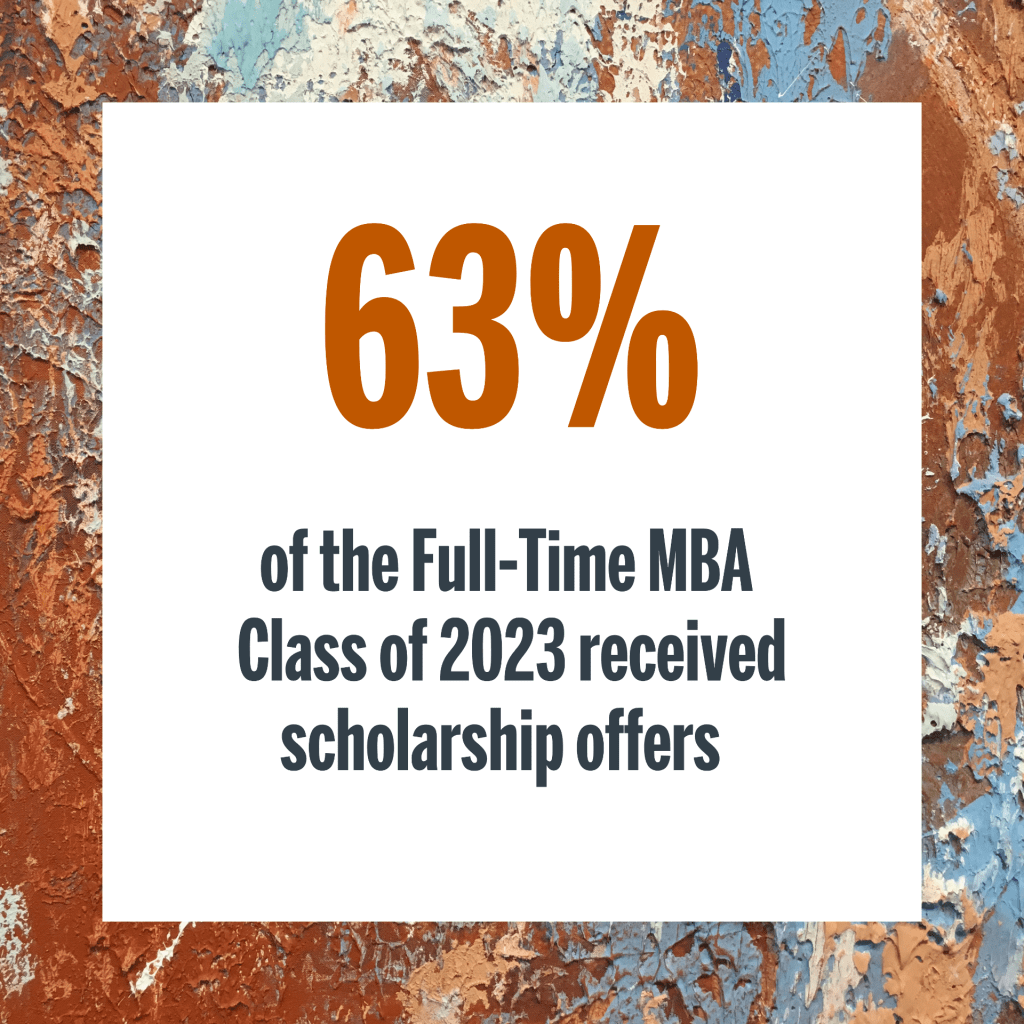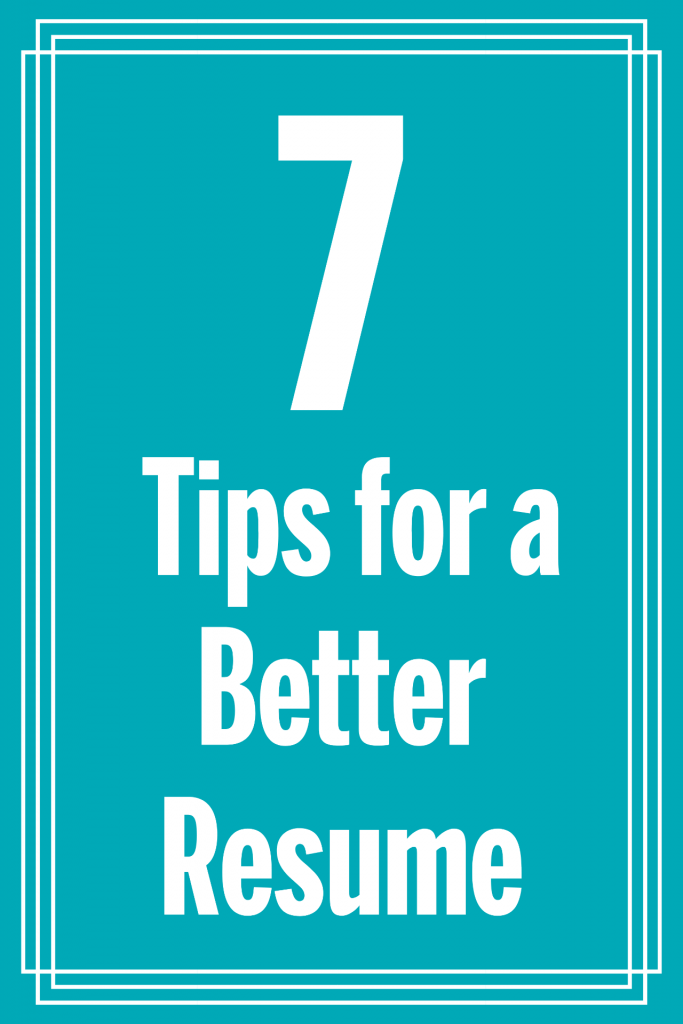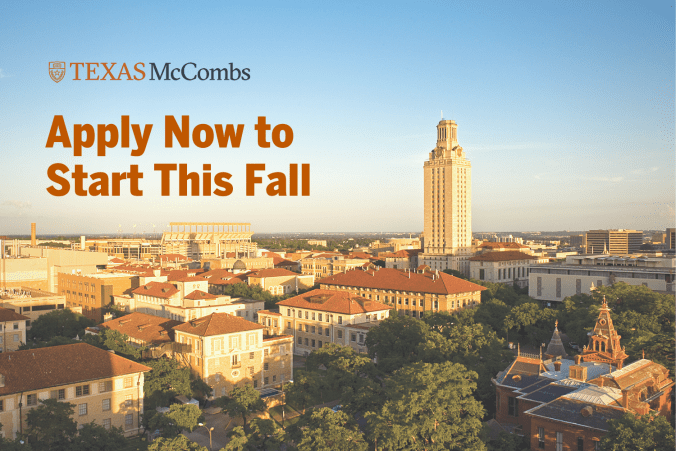The Texas McCombs Full-Time MBA application requires one professional letter of recommendation from a person who has supervised your work and/or has assessed your performance during your career.
A recommendation letter is one of the only things you rely on someone else to provide in your application. Circumstances differ for every applicant and deciding who you should ask will vary. Below are some scenarios to help guide you in choosing the best recommender for your application.
Your Supervisor
Your current direct supervisor is traditionally the best choice. This is likely the person in your network that knows your strengths and weaknesses better than anyone else. However, this may not be a viable option for you. Perhaps you aren’t able to communicate to your employer that you’re applying to business school or you do not work with your direct boss that closely. It could also be that you attained a new role recently and your current supervisor has not had a chance to work with you very much. Or, you’re an entrepreneur & don’t have a supervisor.
All of these are valid reasons to look for other recommendation sources, but remember that if you do not ask your current supervisor to write your recommendation letter, we do ask that you explain your choice in the Optional Statement.
Your Former Supervisor
If you cannot ask your current direct supervisor to write your recommendation, maybe you can ask a previous supervisor? Depending on how recently you worked with them, the “old boss” may be the best choice, especially if you had a strong professional relationship with that person. This is also a very common option.
Your Indirect Supervisor
Asking an indirect supervisor can be another option, especially if you’ve worked with this person closely on past assignments or long-term projects. This is a nice alternative to a supervisor that you may not work with closely.
Your Client or Vendor
This type of recommendation source is especially useful for entrepreneurs or for applicants who work for a family business.
If you work for a family business, it is preferred that you ask an individual outside of your family to write your letter of recommendation.
Your Mentor
Mentors inside or outside of your workplace are great to have in your corner when it comes time to apply to business school. However, be sure that your mentor has a clear understanding of your current professional value, not just your potential or future goals. Select a mentor with whom you have worked with on measurable tasks to ensure that they will provide a recommendation with depth. Keep in mind that the admissions committee is looking for someone who has worked with you professionally.
Other Options
There are many individuals who may fall in the category of “other recommenders.” For example, a former professor, a colleague, or a coach.
When it comes to these options: use your best judgment. An undergraduate professor may not be the best person to address some of the questions posed on the recommendation form and we’re looking mainly at your post-undergraduate work experience. Direct reports should never submit a letter of recommendation on behalf of their boss, so steer clear of that scenario. And don’t focus only on title– the CEO of a large company may sound like an impressive recommendation, but unless they work with you closely, the recommendation letter will likely fall short of delivering on the information that the admissions committee is looking for.
You’ve chosen a recommender. What’s next?
First, before asking your recommender to take this on, keep in mind that they are likely a busy individual – be sure to give them plenty of notice prior to an approaching application deadline.
Secondly, give them a heads-up about your request. You don’t want to blindly email someone and ask them to write something for you without having a conversation. Sometimes it’s good to revisit certain projects you worked on with them. Most importantly, explain to your recommender why you’re pursuing an MBA. Giving them some context behind your ask will go a long way and will likely result in a stronger letter.
Finally, make sure you give them all the info on the recommendation before you ask. Texas McCombs uses the GMAC Common Letter of Recommendation. Your recommender will be asked to assess specific competencies and traits, as well as answer three explicit questions. While there will be other programs using this form, some schools will ask a series of different questions. If you’re applying to more than one MBA, you may be asking your recommender to fill out and separately submit different forms.
If you have any questions during the application process, we’re here to help. Please visit our website for details on applying to each program and follow us on Instagram for an inside look into the Texas McCombs MBA.
Good luck and Hook ’em!
